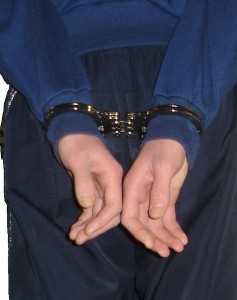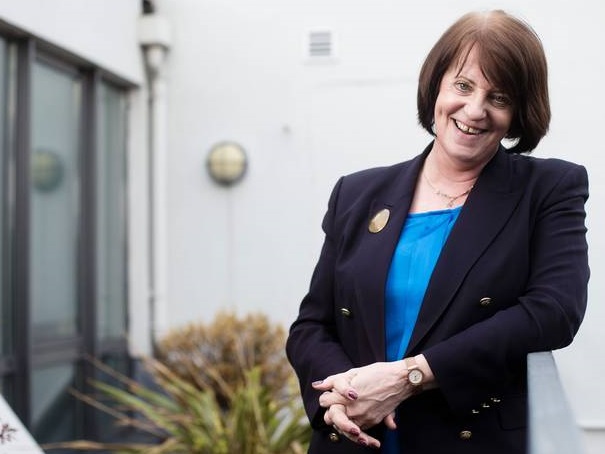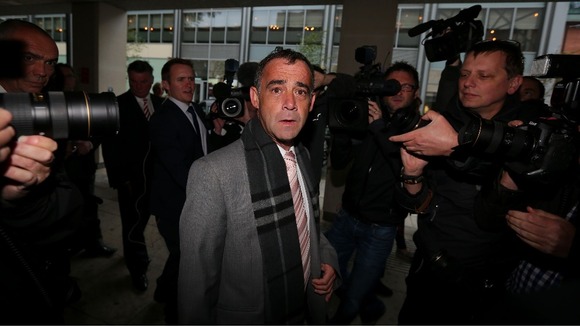-Ashleigh Hamidzadeh (LLB Law, Newcastle University) a.t.hamidzadeh@newcastle.ac.uk
Prison – population in the UK is around 83,151 (Ministry of Justice 2013) – has evolved since the 19th century into the most arduous form of punishment in the United Kingdom. The number of detained young offenders is 1,350 (Transforming Youth Custody – government response to the consultation, transforming-youth-custody-consultation-response 2014). What is the role of punishment? Deterrence? Incapacitation? Or rehabilitation? The Coalition Government is “Putting Education at the Heart of Detention.” So, this blog is putting youth rehabilitation at the heart of our attention.
Punishment today is a strategy of crime: Durkheim believed the role of punishment was to enforce the collective conscience as well as instil the importance of social solidarity. The method of doing so is, punishment as a deterrence. The punishment faced by an offender for committing a wrong doing discourages future offending. Deterrence in action: The Conservative Party Manifesto 1979 promised a “Short, Sharp, Shock” programme to youth offenders. Another approach is incapacitation, the policy of punishment to remove the offender from the capacity to offend once more.
How to control in a detention centre: Foucault, would argue that disciplinary power is the most dominant, this is when power can be held over both the body, and increasing the mind, predominantly through the use of surveillance. Foucault describes this, by using concept of the “Panopticon” (Foucault, 1995). The Panopticon was a style of watchtower in prisons, in which prison guards were able to view all prison cells, however, the prisoners were not aware of when this would occur. Resulting in the conformity of prisoner’s behaviour. Foucault describes this as “Self Surveillance”, which subsequently results in “Self Discipline”.
Punishment as an opportunity for rehabilitation? The enactment of the Crime and Disorder Act 1998, under section 41, established the Youth Justice Board (YJB). This body operates to reduce reoffending and provide support of the victims of crime, as well as assisting the Youth Justice System. Section 41 (5) (b) (iv) provides that the Youth Justice Board must take “the steps that might be taken to prevent offending by children and young persons” (Crime and Disorder Act 1998, s.41 (5) (b) (iv)). The then Home Secretary, Jack Straw MP, described the department as necessary in the operation of the “fractured and immature youth justice system” (Travis 2011). The Youth Justice Board is still in operation today, with between “10 to 12 members, which are appointed by the Secretary of State.” (Crime and Disorder Act 1998, s.41 (3)). As of 2012 and 2013 the net expenditure of the Youth Justice Board was £336.9 million (Grimwood, Strickland, 2013).
In the United Kingdom today we have seven Young Offender Institutions, aimed at rehabilitating young offenders, aged between 18 – 21. However, with currently, 71% young offenders reoffending within 12 months of being released, there is substantial need for reform. ‘Her Majesty’s Inspectorate of Prisons’ (HMIP) in an annual report in 2011, stressed the need for all youth offenders to “be involved in activities that give them the habits, experience and training they need to get and hold down a job when they leave custody” (Allen 2014).
What are “Secure Colleges”?
The Legislation: Under the proposed Criminal Justice and Courts Bill, clause 17 grants the Secretary of State the competence to “the power to provide secure colleges in
England.” (Criminal Justice and Courts Bill Fact sheet) Neighbouring ‘Glen Parva Young Offenders Institution’, the first “Secure College” has been planned to be constructed by 2017, holding over 320 young offenders (Casciani 2014), aged between 12 to 17 years old. The primary attention of these detention units will be on the need for education. The need for educational assistance can be demonstrated when considering that 86% of young offenders, who are currently in Young Offender Institutions have, at one point, been excluded from their school. “Transforming Youth Custody – government response to the consultation”, illustrates the urgent need of education for young offenders, with “over half of 15–17 year olds in YOIs have the literacy and numeracy level expected of a 7–11 year old.”
“We need to make sure that time spent in custody is time well spent. We need to turn these young people into better citizens not better criminals…” (Travis 2011) Nick Clegg has described these “Secure Colleges” as necessary to teach discipline and future life skills.
A previous example of education being used as a catalyst deterring young people from crime can be shown in the American study of the ‘High Scope’. “The Perry Pre School” (Highscope) was a community programme aimed at crime reduction. The experiment took a group of economically disadvantaged African American children in Michigan, and taught an intellectual experimental programme, as well as visiting the families of the children. The experiment continued into adulthood, discovering that those children involved in the project had fewer lifetime arrests, as well as being in education and employment (Schweinhart L. J. 2003. “Benefits, Costs, and Explanation of the HighScope Perry Preschool Program” 2003).
However, the Standing Committee for Youth Justice, have been in much disagreement with the proposed reforms. Penelope Gibbs, the Chair of the Committee, argues that the principle target for change is not the education of youth offenders, but further social causes, and has been quoted as stating: “A more holistic therapeutic model is needed rather than a gimmicky repackaging of our current costly and broken approach to child custody”.
Similarly, The Labour Party’s Sadiq Khan (Shadow Justice Secretary), commented on the need for education, but added that this proposal was insufficient in itself: “Education is crucial in reforming criminals but building one new establishment in the future will do little to reduce the reoffending rate across the rest of the country.”
The aim of “Secure Colleges” is to strive towards greater educational attainment within detention facilities for young offenders, the Secretary of State for Justice, Chris Grayling has stated that “We want education with detention rather than detention with some education.” (Sellgren 2014).
On the 24th of February, the House Commons passed the Second Reading of the Criminal Justice and Courts Bill. The implementation of “Secure Colleges” proposes a need for better education in the provisions of youth offender’s facilities. However, the budget for the reform has been set at less than £100,000. This is considerably lower than the current yearly spending on Youth Offender Institutions, which is approximately £178,000 (Casciani 2014). The future of the “Secure Colleges” will, for now, depend upon the Criminal Justice and Courts Bill Committee Stage reading.




